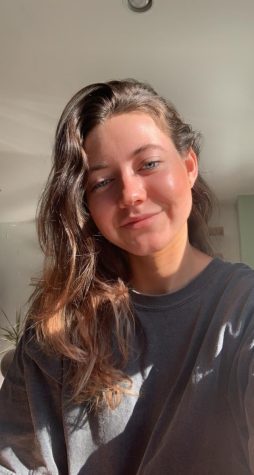Disability Services receives grant for student mentorship program
February 4, 2021
This last December, Macalester Disability Services was awarded a grant from the Mansergh-Stuessy Fund for College Innovation of the Saint Paul Foundation to support their initiative, MentorUP: Mentoring Program for Students with Disabilities.
The Mansergh-Stuessy Fund, first established in 2011, provides annual grants to an innovative project chosen among applicants from Macalester, Gustavus-Adolphus College and Hamline University. As this year’s winner, Disability Services will be able to finance, formalize and expand MentorUP, a program developed under the leadership of Director of Disability Services Melissa Fletchers, Disability Services Coordinator Josie Hurka and Disability Service Case Manager Shayne Fettig-Hughes.
According to Fletcher, the idea for MentorUP was several years in the making, coming from an observed need for personalized support and identification among students with disabilities. When COVID-19 arrived during the spring 2020 semester, it created an urgent need for an intentional community. Fletcher and her colleagues were motivated to launch what Hurka called a “beta test” for a mentoring program which they plan to formally implement during fall 2021, backed by the Mansergh-Stuessy Fund Grant.
MentorUP pairs upper- and underclassmen students with disabilities in a mentor-mentee relationship. The students are encouraged to connect over their shared experiences as students with disabilities, passing along advice, resources and support in the process. According to Hurka, the relationships initiated by MentorUP fill a role that other services for students can’t.
“When information is passed from student to student, I think it has so much power and so much teaching of self advocacy,” Hurka said.
Almost 20% of the student body at Macalester face a mental health or physical condition that is substantial enough to be classified as a disability. Students with disabilities may confront stigma, a lack of representation and the difficulty of requesting accommodations, among other hurdles.
“Sometimes the things that students with disabilities on campus have to navigate are just a little bit more than other students would,” Fletcher said.
Sarah Noble ’22, who served as an upperclassman mentor with the beta test of MentorUP this past fall, applied to the program because of its ability to ease some of the challenges for students with disabilities.
“For students with disabilities and chronic conditions, accommodations and acceptance are often far from ideal at Macalester and beyond,” Noble wrote in an email to The Mac Weekly. “Managing a disability on your own can be a difficult and isolating experience.”
MentorUP aims to provide the value of a relationship built on a shared identity to younger students. According to Noble, this is a resource that makes a real difference in a student’s college experience — but can often be overlooked for students with disabilities. Noble cited stigma and lack of awareness as reasons that disabilities are not talked about as openly as other identities.
“It’s easier to notice or feel comfortable asking if someone is a student athlete or a woman in STEM than it is to ask if someone has a disability!” Noble wrote.
While Noble and her mentee don’t have the same disability, they’ve had the chance to learn about each other’s individual experiences. They’ve bonded over shared academic interests, passed down advice about asking for accommodations in their academic department and have even managed to get boba together on a socially-distanced outing.
Student mentors with MentorUP operated as volunteers during the trial of the program this past fall, but now Disability Services intends to use the bulk of their grant funding to allow mentors to be paid employees. For Noble, this is key to ensuring that the team of student mentors is inclusive to all backgrounds, especially those who may not have been able to afford to spend time in an unpaid position.
“We’re doing important work to help students, and that work has value–supporting each other in an ableist society takes effort,” Noble wrote. “Time is valuable, and unpaid work is never equitable.”
But Noble considers her work as a mentor to be essential whether she is a volunteer or formal employee.
“Mentoring or even simply accommodating people with disabilities is important, regardless of payment.” Noble wrote. “First and foremost, our mentors work because they care deeply about creating a better environment for disabled students.”
In addition to providing paid employment for mentors, Disability Services intends to expand their programming to include opportunities for both mentors and mentees to connect with Macalester alumni. According to Fletcher, this could be a valuable way to pass down advice on how to overcome workplace hurdles like negotiating accommodations or preparing for an interview.
“One person’s experience in negotiating an accommodation with an employer may be very different from someone else’s,” Fletcher said. “We wanted to make sure that students had information about that that was real time experience.”
But alumni connections can also provide a positive framework for students to start imagining their life after college. Fletcher hopes that relationships with alumni will allow students to find examples of thriving professionals who also identify as having a disability.
“They’re seeing success,” Fletcher said. “They’re seeing that once they leave that they can get careers, not just jobs but careers that are really in keeping with what they went to school for — and that [former students] were able to navigate that.”
Disability Services will take this spring to re-establish and then kick off MentorUP at the start of fall 2021 with the structure and funding of the Mansergh-Stuessy fund behind them. In addition to offering mentors paid positions and expanding alumni services, the department intends to increase the number of participants in the program to 10-12 mentors and 80-100 mentees next fall.
“We’re really excited to have this opportunity,” Fletcher said. “It makes your day, when you can bring forward the work of other people, but also just say this matters because it does.”














